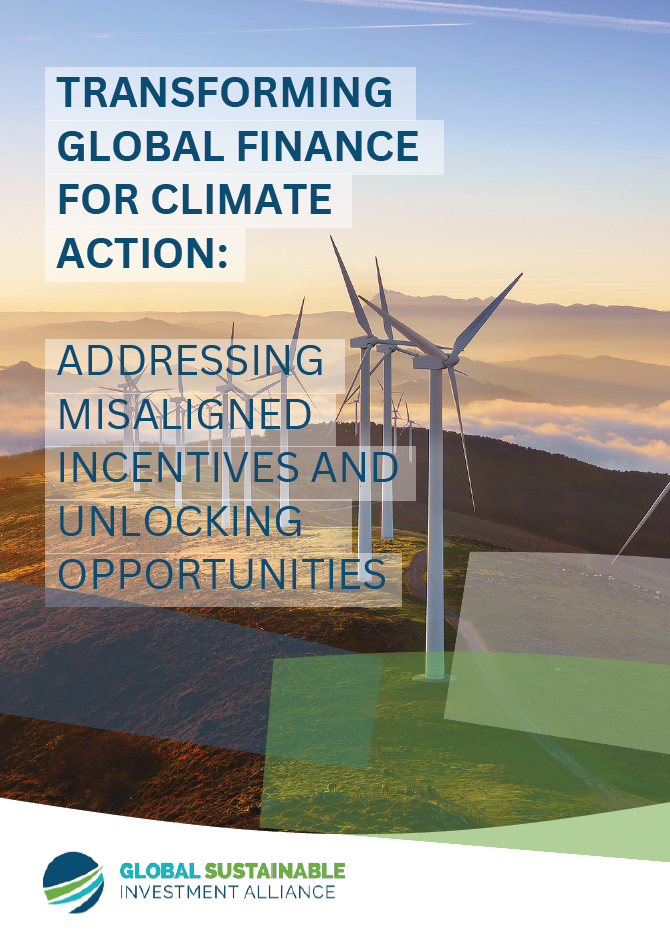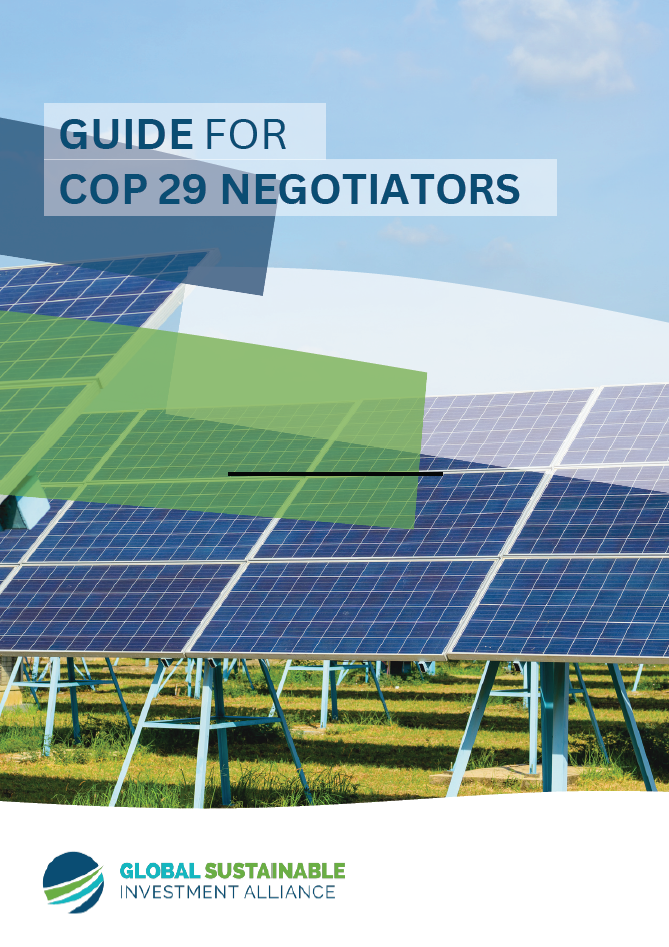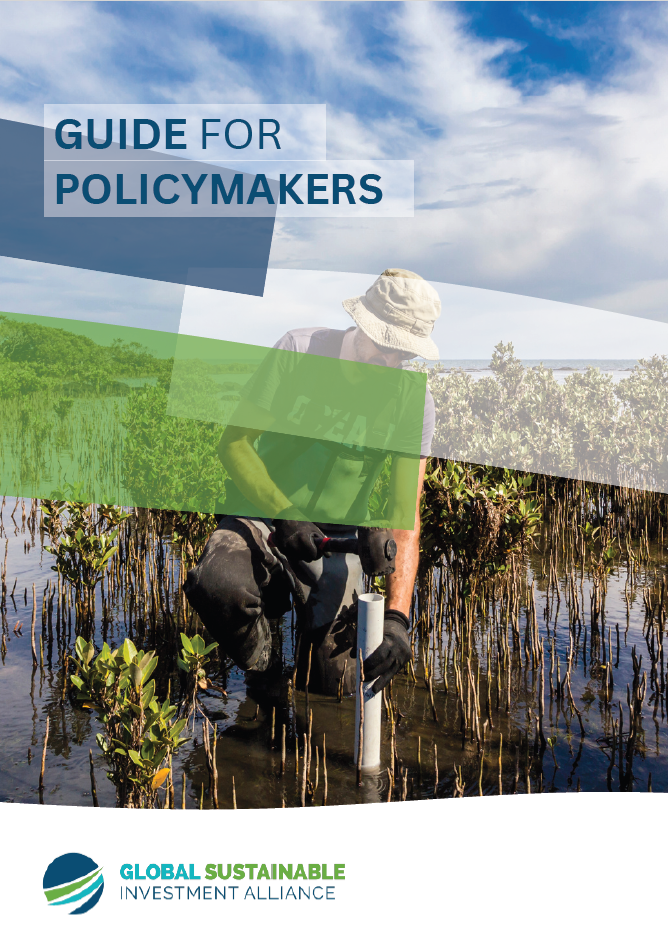Transforming Global Finance for Climate Action: Addressing Misaligned Incentives and Unlocking Opportunities
Addressing the critical role of sustainable investment in combating climate change and nature loss is paramount. Many years on from the Paris Agreement and the subsequent GFANZ commitments, we remain concerned that investors are still incentivized to invest in unsustainable activities and projects. Addressing this requires concerted, ongoing action between policymakers, investors and companies.
GSIA’s report “Transforming Global Finance for Climate Action: Addressing Misaligned Incentives and Unlocking Opportunities” highlights the key issues that prevent capital from flowing and offers actionable recommendations for policymakers and investors. These recommendations can be taken forward both internationally (including in the UNFCCC process) and on a country-by-country level. The path to achieving our climate goals requires unprecedented cooperation and huge movements of private capital. We’d like to underscore the necessity of collaboration between governments, investors, and financial institutions to drive meaningful climate action.
Key Insights from the report:
- Unmet Commitments: Despite bold commitments from governments and financiers, the climate investment gap remains significant. Current pledges are insufficient without robust policy support and implementation.
- Misaligned Expectations: Policymakers often expect private capital to lead the way without fully understanding the complexities of investment decision-making processes. This misalignment hampers effective climate financing.
- Inflated Promises: Many financial commitments are not being realized due to reliance on government policies that have yet to materialize, this places investors and policymakers at an impasse.
To overcome these challenges, the report introduces the PIVOT framework, which identifies core barriers:
- Policy Vacuum: Lack of clear, consistent policies and national transition plans
- Interest: Short-term focus and narrow performance metrics in the financial sector
- Valuation: Inadequate pricing of climate risks and opportunities in financial models
- Ownership: Limited investor engagement on climate issues
- Transition Misalignment: Conflicts between existing business models and climate goals
As we contemplate the important work at COP29 and beyond, the report makes multiple recommendations for policymakers, COP negotiators and investors that will drive meaningful investment in our sustainable future. These include the following key policymaker actions:
- Develop and implement national transition plans and biodiversity strategies.
- Establish regulatory frameworks, financial incentives and corporate transparency to promote sustainable investments.
- Foster public-private collaboration, especially in areas beyond market reach.
By aligning our efforts, we can unlock the capital flows necessary for a sustainable future. This GSIA report provides a comprehensive roadmap for this collaboration, urging all stakeholders to act decisively at COP29 and beyond.
Download the full report here.
The report contains a detailed guide for COP negotiators, which is available as a standalone document. We also have a guide for policymakers and a guide for investors.




